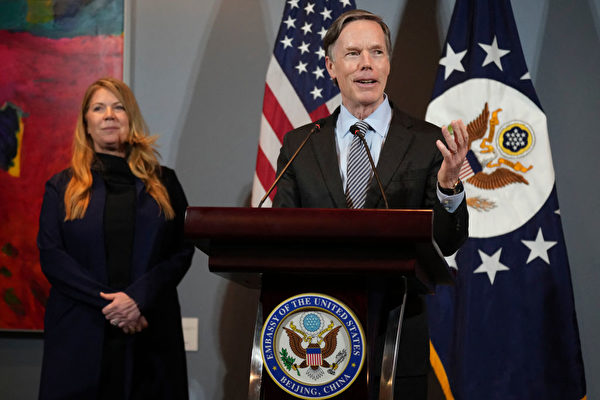The data from the United States Patent and Trademark Office (USPTO) shows that since 2010, research funded by the U.S. Department of Defense, NASA, and other government agencies has resulted in over a thousand patents in sensitive areas such as biotechnology and semiconductor technology for Chinese inventors.
According to a report by Reuters on Thursday, the disclosure of these patent data, previously unreported, is expected to fuel calls in American society to cancel or renegotiate the landmark U.S.-China Science and Technology Agreement.
The USPTO provided this data to the House Committee on China Issues earlier this month. In June of this year, the committee had questioned the USPTO whether U.S. government funding had contributed to technological breakthroughs in China, expressing concerns about the risks of renewing the treaty.
From 2010 to the first quarter of 2024, out of the patents granted by the USPTO, 1020 were at least partially funded by the U.S. government, with involvement from at least one inventor residing in China.
The specific sharing of these patents by U.S. entities or individuals was not detailed in the data.
The patents cover a wide range of fields including pharmaceuticals, biotechnology, semiconductors, molecular chemistry, polymers, chemical engineering, nanotechnology, and medical technology.
The number of patents granted decreased from a high of 99 in 2019 to 61 in 2023. Despite heightened concerns about China’s technological advancements posing national security threats, the first quarter of 2024 saw 16 patents granted.
In recent years, China has surpassed the U.S. in patent applications, becoming the world’s leader in this field.
Various U.S. government agencies have provided funding for these studies. The Pentagon funded 92 patents, the Department of Energy funded 175 patents, and NASA funded 4 patents (U.S. law prohibits NASA from collaborating with China or Chinese companies).
John Moolenaar, the Chairman of the House Committee on China Issues and a Republican congressman from Michigan, expressed astonishment at the fact that American taxpayers unknowingly funded over a thousand patents applied for by Chinese entities, with nearly 100 of them attributed to the Department of Defense.
Among all government agencies, the Department of Health and Human Services funded the highest number of such patents, totaling 356.
The USPTO, NASA, and the Departments of Defense, Energy, and Health have not responded to requests for comments from Reuters.
The U.S. State Department, responsible for renegotiating the U.S.-China Science and Technology Agreement, stated that discussions with China on the agreement are ongoing. A spokesperson for the State Department affirmed the commitment to advancing and protecting U.S. interests in the field of technology.
While there is no direct evidence linking this funding and patents to the U.S.-China agreement, the agreement still plays a significant role as the foundation for scientific and technological exchanges between the two countries.
The U.S.-China Science and Technology Agreement, signed in 1979 after the U.S. formally recognized the Communist Party-led People’s Republic of China, was the first bilateral agreement between the two countries, laying the groundwork for thriving academic and commercial exchanges. Originally seen as a way to influence China’s development trajectory due to its technological lag at the time, the agreement was considered a stabilizing force in U.S.-China relations.
Today, the U.S. and China are not only the largest research partners but also the biggest competitors. Growing concerns among Americans about cooperation with China point to accusations of intellectual property theft and fears of China’s military strengthening posing a threat to U.S. interests, making comprehensive renewal of the agreement more challenging.
Supporters of extending the agreement argue that terminating it would stifle academic and business cooperation and hinder U.S. understanding of China’s technological advancements.
In 2018, the agreement was extended for five years, with modifications by the Trump administration to safeguard U.S. intellectual property from Chinese theft.
In June 2023, the then-chairman of the China Committee, Mike Gallagher from Wisconsin, led a congressional group urging the U.S. State Department to scrap the agreement, claiming that through technological cooperation with the U.S., the Chinese Communist Party had gained military advantages. In August, Congressman Andy Barr from Kentucky introduced a bill requiring the State Department to provide a security risk assessment to Congress, threatening to revoke the agreement if not provided.
In August 2023, the U.S. and China managed to barely extend the agreement for four months, keeping this milestone agreement intact. This year in February, the agreement was further extended for six months until Tuesday, August 27. Given ongoing renegotiations of the terms, there may be another short-term extension in the coming days.

